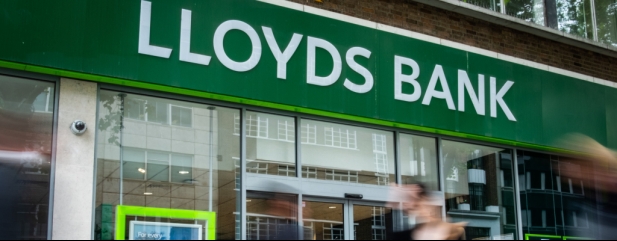Archived article
Please note that tax, investment, pension and ISA rules can change and the information and any views contained in this article may now be inaccurate.
Investors unconvinced by Lloyds strategy after earnings disappointment

AJ Bell is an easy to use, award-winning platform Open an account
We've accounts to suit every investing need, and free guides and special offers to help you get the most from them.
You can get a few handy suggestions, or even get our experts to do the hard work for you – by picking one of our simple investment ideas.
All the resources you need to choose your shares, from market data to the latest investment news and analysis.
Funds offer an easier way to build your portfolio – we’ve got everything you need to choose the right one.
Starting to save for a pension, approaching retirement, or after an explainer on pension jargon? We can help.
Please note that tax, investment, pension and ISA rules can change and the information and any views contained in this article may now be inaccurate.

Even on a down day for the markets prompted by war in Ukraine the 9% fall in Lloyds Banking (LLOY) shares on 24 February was notable as it reported full year results. Earnings were weaker than forecast due to higher-than-expected fraud costs and restructuring charges.
The market appeared unconvinced by a strategy to increase non-interest income in areas like wealth and investment management.
Berenberg analyst Peter Richardson says Lloyds has a ‘clear rationale’. He comments: ‘The bank has an enviable distribution network and has low penetration in these areas. Problematically, however, this is not the first time that Lloyds has attempted this strategy and past success has been limited.’
Richardson notes that for this reason Lloyds is unlikely to receive full credit for the targeted £700 million of revenue growth in this area by 2024 whereas the increased costs associated with this initiative are more ‘certain’.
The weak sentiment towards Lloyds is not helped by fears that Russia’s invasion of Ukraine might derail anticipated interest rate rises globally.
In 2021 the bank’s pre-tax profit rose to £6.9 billion versus a consensus forecast of £7.2 billion. Earnings per share of 7.5p fell short of a consensus estimate of 8.1p. Return on tangible equity at 13.8% was also shy of an expected 15.1%.
More positively, the group’s common tier one ratio (a key measure of a bank’s balance sheet strength) at 17.3% suggests surplus capital of £7.4 billion.
This is equivalent to 20% of the bank’s current market value and explains Lloyds’ ability to announce a significantly larger than expected share buyback of £2 billion. The market was expecting a more moderate buyback of £1.4 billion. The group’s capital position means it can support a 5% dividend yield.
As the biggest UK retail bank, Lloyds has a large customer base to whom it can provide investment advice and savings services. However, while the bank’s Scottish Widows business is well placed to support life insurance and pension needs, the group’s capabilities in wealth and investment management have been lacking.
Lloyds agreed a wealth management joint venture with Schroders (SDR) in 2018, though Berenberg’s Richardson notes ‘progress here has already disappointed’.
In July 2021 Lloyds announced the £390 million acquisition of Embark. The deal bolstered Lloyds’ position within wealth management and brought in 410,000 customers and £35 billion of assets under management.
The hope is Embark’s digital capability and expertise will help Lloyds to deliver a modernised, self-managed investment offering. Lloyds is aiming to reach a top-three position in the individual pensions and retirement drawdown market by 2025.
These articles are provided by Shares magazine which is published by AJ Bell Media, a part of AJ Bell. Shares is not written by AJ Bell.
Shares is provided for your general information and use and is not a personal recommendation to invest. It is not intended to be relied upon by you in making or not making any investment decisions. The investments referred to in these articles will not be suitable for all investors. If in doubt please seek appropriate independent financial advice.
Investors acting on the information in these articles do so at their own risk and AJ Bell Media and its staff do not accept liability for losses suffered by investors as a result of their investment decisions.
The value of your investments can go down as well as up and you may get back less than you originally invested. We don't offer advice, so it's important you understand the risks, if you're unsure please consult a suitably qualified financial adviser. Tax treatment depends on your individual circumstances and rules may change. Past performance is not a guide to future performance and some investments need to be held for the long term.
 magazine
magazine